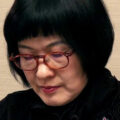Analogous Effects: on Rajorshi Patranababis’ translation of Sabari Ray’s Buddha and Void

“Translating is producing analogous effects by different means.”
Paul Valéry
Literary translation does not involve only the rendering of a text from one language into another but also a rendering of the civilizational ethos inherent in the original into the target culture. As Anthony Burgess reminds us, “Translation is not a matter of words only: it is a matter of making intelligible a whole culture.” I would go even further. I would suggest that translators transcribe not only the words and cultures of a given work, but also its silences, all that remains unsaid. In the words of Vivek Shanbag: “The essence of translation lies in taking what is unsaid in a work from one language to another.” To recreate the unspoken would be to translate the virtually untranslatable, and to do that, one would, according to Shanbag “need to understand what went into making the original; then one must dismantle it and rebuild it in the other language.”
Rajorshi Patranabis’ translation of Sabari Ray’s Buddha and Void (Hawakal, 2024) from the original Bengali into English is one such literary experiment. Patranabis seeks to transliterate the gaps, ellipses, silences and elisions which, together with the written word, make up the totality of the work of art.
In one poem, for example, the emptiness of “void” weighs heavily in the “absence” of husband / father in the family relations, which are evoked powerfully. Recounting the departure of Siddhartha, the speaker laments:
Yashodhara lives in me; little Rahul thrives in me.
He left—
He went away many a time.
Void is concealed
cry of grace.
Not only does the line “He left—” in its intransitive incompleteness, shorn of subsequent details, echo hollowly in a poetic landscape of loss but, lacking a rhetorical balance, it seems unfinished from the auditory and visual standpoints, too. The silence after he “left,” potent with what is left unsaid, is a translation of the original silence, seething with stories and meanings.
Authors who believe in the value of literature’s increased mobility and visibility via translation subscribe, simultaneously, to a concept of “world literature”—works that transcend the specific culture and cultural moment of their creation. “Without translation, I would be limited to the borders of my own country,” says Italian author Italo Calvino. “The translator is my most important ally. He introduces me to the world.” Patranabis echoes the sentiment when he holds that he “acted like a bridge between the poet and the whole world,” supporting traditional wisdom which believes that “writers make national literature, while translators make universal literature.” Perhaps though it is the willingness of both, and their shared faith in the potential transcendence of literature, that brings “world literature” or “universal literature” into being.
The translation of the title, Buddha and Void, is itself a fascinating challenge of cultural and linguistic transmigration. How does one translate shunyata? Among its many potential translations are emptiness, lack, nothingness, zero, and void. Here is one translation, from the final couplet of a poem, where the selection adds to the complexity of the discourse:
Zero is an excuse, directionless, aimless— bubbles of void complete the zero.
Interestingly, zero coexists with perfection, what the translator describes as “the fulfilment of zero.” Since the circle can be a symbol of perfection, the zero is both nothing and everything in its arithmetic and geometric forms respectively. Even in its arithmetic form, it holds considerable potential value as a cipher.
So much about a given translation depends on the nature of the source text. How rich is it in puns or double meanings? How many shorthanded references and localized allusions does it make? How colloquial is it? How does it use language to distinguish character or tone? In this case, the editor, Kiriti Sengupta, describes the original work by Sabari Ray as being informed with “quiescent intricacies and profundity,” which speaks volumes about the difficulties that lay ahead for the translator.
Certain lines in Patranabis’ translation burn a hole in the consciousness, detonating the detritus of debts and doubts that had gathered in the crevices of the brain. These opening stanzas are one such sudden explosion:
Man doesn‘t need to know The airport where Siddhartha loses His luggage of desire. He does not have clothes to change the lost box had all the sickness, suffering and death.
Or, the exquisite effulgence of these lines, from another poem:
There is light at the lotus pond, Ananda, I will sleep at dawn.
Or, the raw awareness of the cost of pursuing enlightenment couched through a blend of the visceral and the colloquial:
I don't need Nirvana: it’s an addiction.
Conversely, there are poems where a sense of serenity is induced through the relaxed rhythms of “The entire day is left / for the moon to rise,” which evoke, with singular calmness, the notion of waiting that is central to Buddhist thought.
The treasure of this translation lies in the apparent simplicity of its language. It seeks to grasp and communicate spiritual and intellectual complexities through the use of an innocent, almost childlike diction that is actually far from “simple,” freighted as it is with considerable densities of meaning, and refined in the fire of revisions. Take for instance, these lines:
There is nothing I can give you from this heavy bag As he stretched his hands towards me I felt void.
The clarity of the original has been distilled even further in the crucible of poetic practice. The “heavy bag,” a splendid metaphor for the burdens of human life, contrasts with the “nothing” in the previous line and the “void” at the end of the stanza. The word “bag”—which is virtually a Bangla word in the ubiquity of its usage in the source language—suggests the interpenetration of the two languages as a result of the protracted colonial encounter.
The treasure lies in terseness. The creative compaction recalls the mot juste of Ezra Pound or the “scrupulous meanness of style” advocated by James Joyce as a preliminary requisite of Modernist aesthetics. Quiet epiphanies unfurl in a delicate discourse of search and discovery. In one poem, for instance, we have the lines: “Rain drenches your city/ but I remain unchanged,” as the speaker realizes the truth of his condition in a flash of spiritual illumination.
A fine discrimination of language attends differences in, or developments of perception instituting a hermeneutics of harmony. Describing the philosophical idea of rebirth, Patranabis translates:
You and I are only earth Count on the changes the mud undergoes to become a jar,
Maintaining at the end how the “soil” remains fearless. From the image of “earth” with its agricultural associations through that of “mud” suggesting the potter’s clay and the “jar” of the human shape that eventually disintegrates into the organic “soil” of a subsumptive geology— Ray / Patranabis capture the inevitable transitions in the journey of human life, as also the rebirths through which we are shaped repeatedly into being.
The language of crossing, of exploring, of surfing and surfacing, informs the verse as the translator sometimes flows with the current and, at others, against the tide. It is his bid to transfer the precious submerged wisdom of the original into the different texture and tonalities of the target language. Or, as one poem affirms: “The path is my resting place,” associating the journey with repose, suggesting the interchangeability between motion and stasis.
Patranabis’ translation of Ray is hauntingly beautiful, textured and clear, taking us through journey, void, trance, awakening, and fulfillment in the Buddhist context, just as encountered in the original text. In one memorable and representative poem, the speaker yokes together opposites:
Clamor and quietude quietude and clamor— both are like load-carrying mammals, walking by the sea. “Come, let me drop you,” one says to the other.
We strain to catch the elusive notes of Ray and Patranabis’ lyrical utterance, at once intensely spiritual and deeply sensuous as it leads us to what he calls a “new evolved silence.” Have “clamor” and “quietude” then been resolved into a higher peace, like the mantras which “are sound / devoid of any language”? Or is this meditative tranquility, like Shelley’s “unheard melodies,” the ultimate and ineffable articulation of poetry and philosophy—the silence that concentrates all sounds in the muteness of its eloquence?
Whatever the answer Buddha and Void is a consummate rendering of the Buddhist understanding of “shunya” and its accompanying concepts, as it calibrates the subtle distinctions of the Bengali original through a meticulous deliberation on and application of the English language in its sophisticated variations.
About Ajanta Paul
Ajanta Paul is a literary critic, poet and short story writer, currently Principal & Professor of English at Women’s Christian College, Kolkata, India. A Pushcart nominee, her writing has been featured in Spadina Literary Review, The Pangolin Review, Harbinger Asylum, Written Tales Magazine, The Bombay Review, The Piker Press and The Statesman, Kolkata, and elsewhere. She has published several books of criticism and fiction, the latest being The Elixir Maker and Other Stories (Authorspress, New Delhi, 2019).





